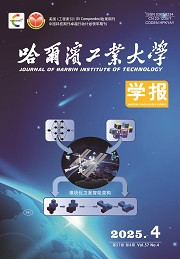| 引用本文: | 马放,张照韩,杨菲菲,冯玉杰,高鹏,张倩,李昂,孙清芳,任南琪,姜欣欣,张晓昕.松花江水内分泌干扰物及雌激素活性调查[J].哈尔滨工业大学学报,2011,43(12):58.DOI: |
| MA Fang,ZHANG Zhao-han,YANG Fei-fei,FENG Yu-jie,GAO Peng,ZHANG Qian,LI Ang,SUN Qing-fang,REN Nan-qi,JIANG Xin-xin,ZHANG Xiao-xin.Preliminary survey of endocrine disrupting compounds and estrogenicity in Songhua River[J].Journal of Harbin Institute of Technology,2011,43(12):58.DOI: |
|
| |
|
|
| 本文已被:浏览 717次 下载 337次 |

码上扫一扫! |
|
|
| 松花江水内分泌干扰物及雌激素活性调查 |
|
张照韩,冯玉杰,高鹏,孙清芳,任南琪
|
|
(哈尔滨工业大学 城市水资源与水环境国家重点实验室,150090 哈尔滨,yujief@hit.edu.cn)
|
|
| 摘要: |
| 为明确松花江水体中内分泌干扰物的污染状况,利用固相萃取富集-气质联机/重组基因酵母对松花江全江11个典型断面进行全面采样分析.结果表明:江水中∑5ES质量浓度在6.59~30.97 ng/L,平均值为17.23 ng/L,出现最大质量浓度的位置是达连河排污口,雌酮(E1)和雌二醇(E2)是其中贡献最大雌激素,其质量浓度范围为1.54~6.34和1.86~20.78 ng/L,主要来源于城市污水;所有采样点均检出了壬基酚(NP)、辛基酚(OP)和双酚A(BPA),其质量浓度范围分别为236.3~1067.9、3.07~256.10 和13.0~206.5 ng/L,均值为512.8、34.1和52.8 ng/L,其质量浓度均高于雌激素,主要来源于生活污水和工业废水;松花江水体的雌激素活性为0.50~26.16 ng/L,最大值出现在哈下采样点,生活污水是雌激素活性的一个重要来源,其他采样点EEQ质量浓度均小于3.60 ng/L,其质量浓度与国内外河流处于同一污染水平,但存在潜在的生态安全问题. |
| 关键词: 松花江 内分泌干扰物 雌激素活性 |
| DOI: |
| 分类号:X522 |
| 文献标识码:A |
| 基金项目:国家杰出青年科学基金项目(51125033);国家高技术研究发展计划项目(2007AA06A411);国家创新研究团体基金项目(50821002). |
|
| Preliminary survey of endocrine disrupting compounds and estrogenicity in Songhua River |
|
ZHANG Zhao-han,FENG Yu-jie,GAO Peng,SUN Qing-fang,REN Nan-qi
|
|
(State Key Laboratory of Urban Water Resource and Environment, Harbin Institute of Technology, 150090 Harbin,China, yujief@hit.edu.cn)
|
| Abstract: |
| For determining the pollution status of endocrine disrupting compounds(EDCs) in Songhua River, solid phase extraction (SPE) followed by GC-MS/Yeast Estrogen Screen(YES) assay were used to analyze the EDCs concentration at 11 sampling sites of Songhua River. The results indicated that total five estrogen ∑5ES[JB))] was in the range of 6.59-30.97 ng/L, the average value was 17.23 ng/L, and the water from Dalian river outfall had the highest ∑5ES. Estrogen (E1) and 17β-estradiol (E2), which were mainly from urban sewage and contributed most of all estrogen and their concentrations, were in the range of 1.54-6.34 and 1.86-20.78 ng/L, respectively; Nonylphenol (NP), octylphenol (OP) and bisphenol A (BPA) were detected in all the sampling sites, with the mean values of 512.8,4.1 and 52.8 ng/L, respectively, which were mainly from the domestic sewage and industrial wastewater; The estrogenicity of river water detected by YES was in the range of 0.50-26.16 ng/L, and the highest EEQ occurred at the Haxia sampling site. The EEQ at other sampling site was all below 3.60 ng/L, which was at the same pollution level with other river, but it also existed the potential problems of ecological security in Songhua River. |
| Key words: Songhua River endocrine disrupting compounds estrogenicity |
|
|
|
|







